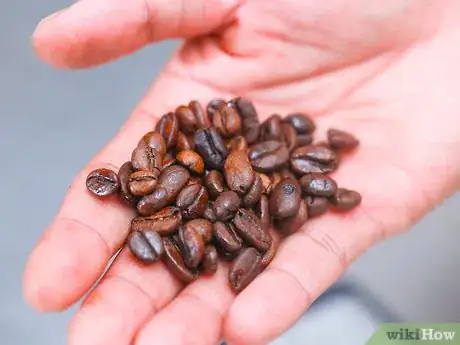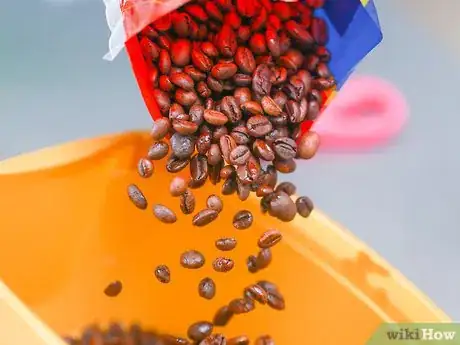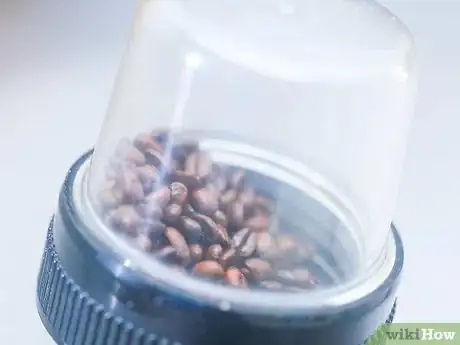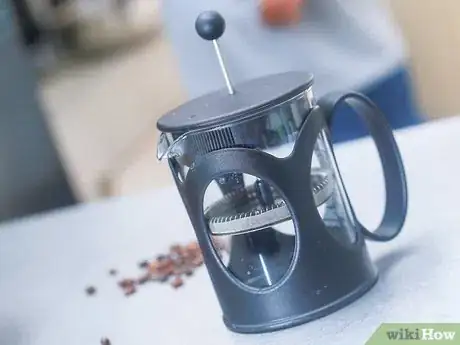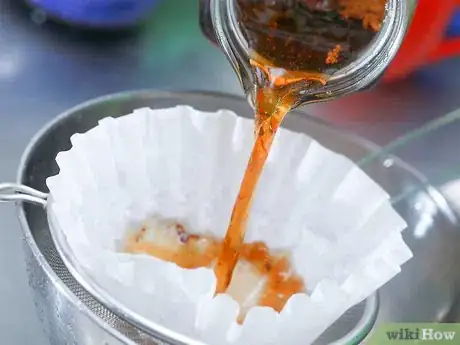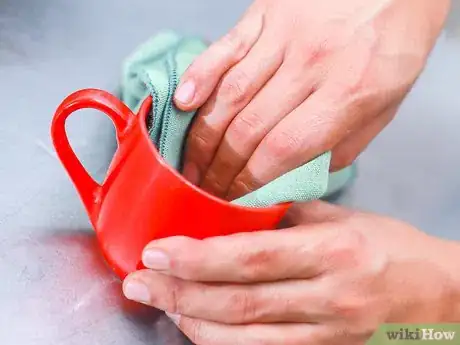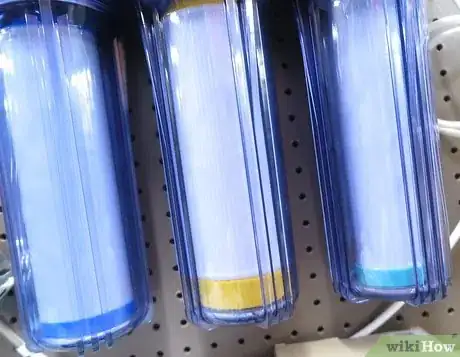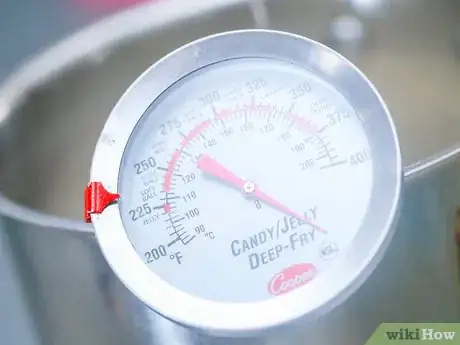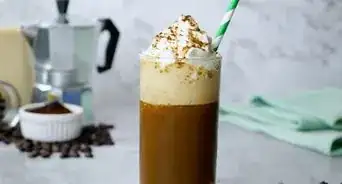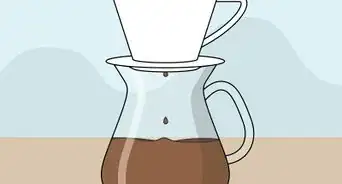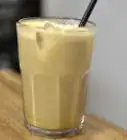This article was co-authored by Rich Lee. Rich is the Coffee & Food Program Director of Spro Coffee Lab in San Francisco, a California-based company that specializes in craft coffee, experimental mocktails, and culinary food science. Together with his team, Rich strives to bring forth a uniquely transcendent experience, free of stereotypical eats and drinks. Prior to owning his own business, Rich was a barista for big name coffee retailers such as Blue Bottle Coffee and Sightglass.
There are 11 references cited in this article, which can be found at the bottom of the page.
This article has been viewed 58,937 times.
Each coffee fanatic has to find his own personal favorite. It might take dozens of tries just to get the right bean, trying different sources, blends, and roasts. This journey is part of your personal experience, but you won't get anywhere without the right brewing techniques. Here's an overview of every consideration that goes into your perfect cup.
Steps
Buying, Storing, and Grinding
-
1Buy fresh roasted coffee beans. Coffee tastes best when brewed right after the roast. Look for a “roasted on” date on the label, and get the freshest possible. Buy no more than two weeks’ worth of coffee at once, so it doesn’t go stale in your pantry.[1]
- A vacuum-sealed, opaque bag keeps coffee fresher than other packaging.[2]
-
2Try different roasts. If you’re not a full-fledged coffee fanatic yet, start with a medium roast for coffee, or a dark roast if you’re making espresso.[3] To explore more flavors, experiment with roasts ranging from mild light roasts to the darkest, charred beans. There are actually many degrees of roast that fit into “medium” and “dark,” so try several, comparing the color of the beans.[4]
- While extra-dark roasts have become “sophisticated,” many coffee lovers prefer a medium or medium dark roast that doesn’t scorch away the unique flavors of the bean.
- If you’re serious about finding your perfect cup, learn to roast your own beans. Once you’ve had some practice, you can make the freshest coffee possible with perfect control over the roast strength.
Advertisement -
3Check the bean origin and type. Make sure your coffee manufacturer has nothing to hide. The label should state the type of bean (arabica or robusta) and the country of origin. A blend sourced from multiple countries may mean the manufacturer is choosing cost over quality, but there are certainly high-quality exceptions. The real danger sign is a label that doesn’t provide this information at all.[5]
- In your quest for perfect beans, choose 100% arabica beans, or a blend with a small proportion of robusta if you enjoy more caffeine. Not all arabica beans are top notch, especially if sold as a dark roast, but the best examples are much tastier and less bitter than robusta.
-
4Store in an airtight container.[6] Exposure to air, light, heat, or moisture can ruin the flavor of your coffee beans. Kitchen supply stores sell a great solution: ceramic containers with a latch lid, lined with a rubber band. Sealed plastic tubs or zip-locked bags are okay, but not as airtight.
- Temperature changes cause flavorful liquids to condense and evaporate. Keep beans at room temperature, or in the fridge if your kitchen is hot. Freeze only if you have too many beans to use in the next few weeks.
-
5Grind right before brewing. Coffee grounds will lose flavor the longer you delay. For best results, grind at home using a burr grinder. If you only have a blade grinder, test out the more precise burr method by having your beans ground at a coffee store (not a grocery store), and using them right away. The size of the grind depends on the brewing process:[7] [8]
- For a French press or cold brew coffee, make a coarse grind, with chunky particles similar to potting soil.
- For drip coffee, make a medium grind, the texture of coarse sand.
- For espresso, make a fine grind, the texture of sugar or salt.
- If your coffee tastes too bitter, try a coarser grind.
- If your coffee tastes flat, try a finer grind.
Brewing Methods
-
1Brew with a French press. Many experts favor this method, but it can take some practice to avoid bitter over-extraction. Here's how to make coffee magic:[9]
- Remove the lid and plunger.
- Add the coffee. Use two tablespoons (30 mL) for a one-serving press, or fill to the mark on the side of the press.
- Pour hot water to the halfway mark, wetting all the grounds.
- After one minute, stir the floating grounds gently. Add the remaining water and put on the lid, with the plunger pulled fully up.
- After three additional minutes, press slowly down until the plunger hits bottom. Keep the plunger flat.
- Pour into a cup. There will be a little sediment in the bottom, which you can swirl in, save for a strong finish, or leave in the cup.
-
2Pour through a filter.[10] Another excellent method, if you can put in a few minutes of effort. Start by rinsing your paper filter and the filter cone in hot water. Place over your cup and brew as follows:[11] [12]
- Pour coffee grounds into the filter. Shake gently to make it level. Measure according to preference, or about 2 tbsp (30 mL) per serving.
- Using a kettle with a narrow spout, add just enough hot water to wet the grounds. Start at the center and work outward, without hitting the filter sides.
- Wait 30–45 seconds for the coffee to let off gas, "blooming."
- Pour the rest of the water from just above the filter cone, evenly across the grounds. Pour at a steady rate and aim to run out of water in about 2 minutes 30 seconds.
- Wait for the rest of the water to drip through, about 20–60 seconds.
-
3Drip brew with a coffee maker. There's nothing to this method. Put the water where the water goes and the grounds in the filter, and you'll get coffee. The results are fine, but usually inferior to the methods above.
-
4Consider switching from percolators or single serving containers. Percolators use very hot water that creates a bold cup of slightly burned coffee.[13] Most coffee experts agree that this is the worst brewing method. Single serving coffee containers make all the decisions for you, which usually means a consistently mediocre cup. These options are no good if you're aiming for the skies.
Improving Your Brew
-
1Clean anything that comes in contact with the coffee. Stale coffee residue or worse contaminants need to be scrubbed away frequently. If you’re using a machine, refer to the owner’s manual for cleaning instructions.
-
2Filter water to remove strong tastes. You may use cold tap water, if you let it run for a few seconds first. If your tap water has a strong or unpleasant taste, put it through a filter first.[14]
- Do not use distilled or softened water. These lack minerals which aid the coffee extraction process.[15]
- Scrub any container used to store water thoroughly and often.
-
3Measure the amounts of coffee and water. For more accuracy, use a scale to measure the coffee, not a measuring spoon.[16] While you’re learning, write down the amounts you used and what you thought of the result. You can start with the following recommendations per cup, but feel free to override them with your personal preferences:[17]
- Coffee grounds: 0.38 ounces (10.6 grams), or 2 tablespoons (30 mL)
- Water: 6 fluid ounces (¾ cup / 180 mL). Brewing methods that evaporate a lot of water may require more. It’s best to brew on the strong side, and add more hot water to your cup if it’s too strong.
-
4Measure your water temperature.[18] Always brew coffee with water temperature between 195 and 205ºF (90.6–96.1ºC).[19] In most home setups, water will cool to this temperature within 10–15 seconds of boiling.[20] Optionally, use an infrared kitchen thermometer to be certain.
- At 4,000 feet (1200 meters) above sea level or higher, use the water as soon as it boils.
-
5Track brewing time exactly. Suggested brewing times are included for each brewing method above. Time your brew with a stopwatch for best results. You need just enough time to extract flavor compounds, without over-extracting your way to an extra-bitter cup.
- You can reduce the brewing time if using a finer grind, increase it if using a coarser one, or change it to match personal preference.[21] Just keep track of what you’re doing, so you know how to repeat your success.
Warnings
- Be careful while drinking hot coffee. Try to release some of the heat by stirring it with a metal spoon before drinking.⧼thumbs_response⧽
References
- ↑ http://www.ncausa.org/i4a/pages/index.cfm?pageID=71
- ↑ http://www.thrillist.com/drink/nation/how-to-tell-crappy-coffee-grocery-store-coffee
- ↑ http://www.coffeedetective.com/dark-roast.html
- ↑ http://www.ncausa.org/i4a/pages/index.cfm?pageid=74
- ↑ http://www.thrillist.com/drink/nation/how-to-tell-crappy-coffee-grocery-store-coffee
- ↑ Rich Lee. Coffee & Food Program Director, Spro Coffee Lab. Expert Interview. 22 November 2019.
- ↑ http://www.specialty-coffee-advisor.com/how-to-grind-coffee.html
- ↑ http://www.ncausa.org/i4a/pages/index.cfm?pageID=71
- ↑ http://www.howtobrewcoffee.com/French.htm
- ↑ Rich Lee. Coffee & Food Program Director, Spro Coffee Lab. Expert Interview. 22 November 2019.
- ↑ http://www.seriouseats.com/2014/06/make-better-pourover-coffee-how-pourover-works-temperature-timing.html
- ↑ https://bluebottlecoffee.com/preparation-guides/drip
- ↑ http://www.coffeedetective.com/drip-or-percolated-coffeewhich-is-best.html
- ↑ http://www.ncausa.org/i4a/pages/index.cfm?pageID=71
- ↑ https://blackbearcoffee.com/resources/87
- ↑ Rich Lee. Coffee & Food Program Director, Spro Coffee Lab. Expert Interview. 22 November 2019.
- ↑ https://blackbearcoffee.com/resources/87
- ↑ Rich Lee. Coffee & Food Program Director, Spro Coffee Lab. Expert Interview. 22 November 2019.
- ↑ http://www.ncausa.org/i4a/pages/index.cfm?pageID=71
- ↑ http://www.howtobrewcoffee.com/French.htm
- ↑ https://blackbearcoffee.com/resources/87
About This Article
To make perfect coffee in a French press, remove the lid and plunger, then add 2 teaspoons of freshly-ground, fresh roasted arabica coffee beans in a medium roast. Pour hot water to the halfway mark, then stir the grounds gently after about a minute. Fill the press the rest of the way with hot water and put on the lid with the plunger pulled up. After 3 more minutes, press slowly down until the plunger hits the bottom. Keep the plunger flat and pour the coffee into a cup. Serve and enjoy! For different ways to brew a perfect coffee, including how to use a filter or a coffee maker, read on!
